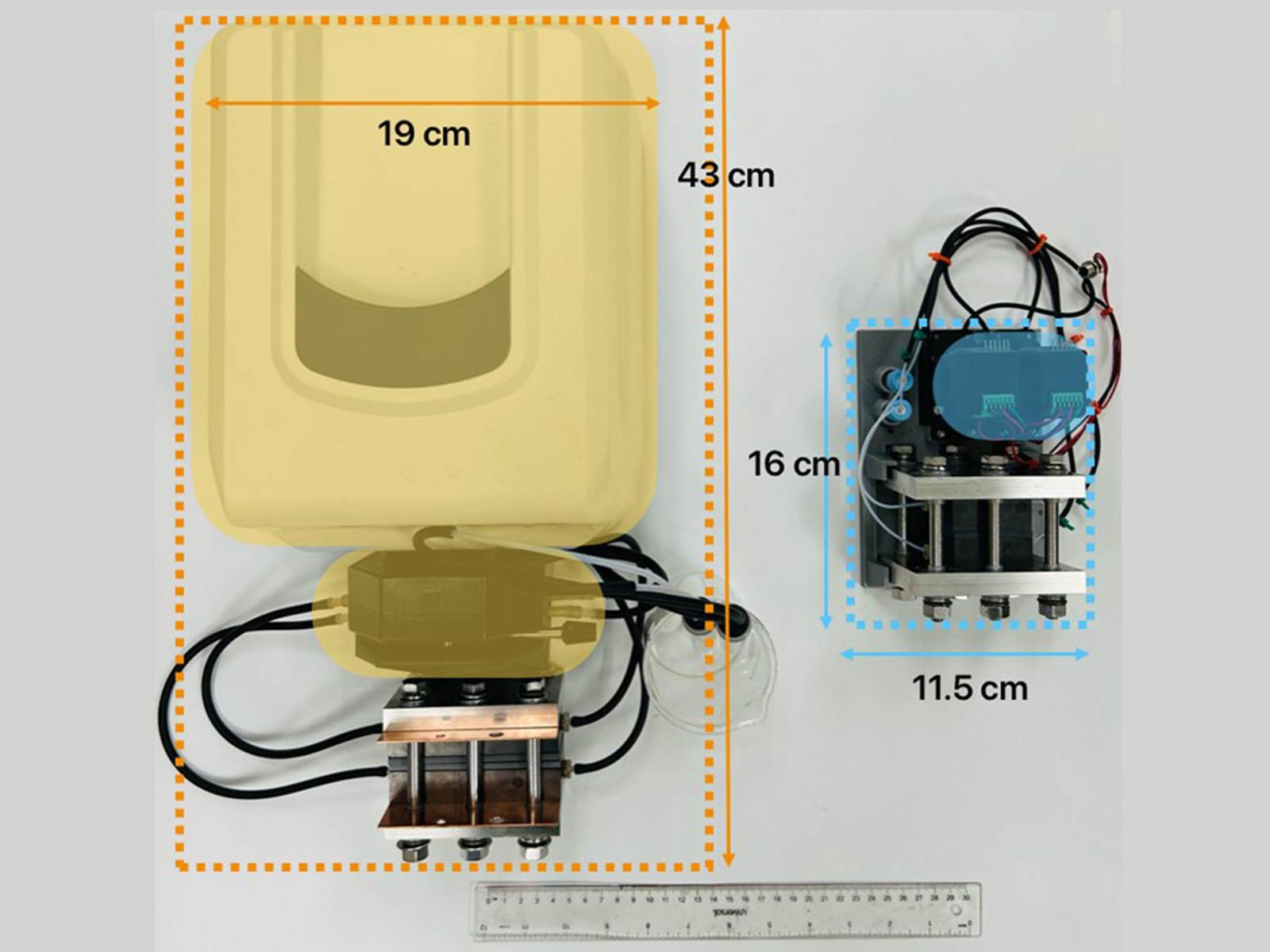RICHLAND, Wash.-Sometimes, in order to go big, you first have to go small. That's what researchers at the Department of Energy's Pacific Northwest National Laboratory have done with their latest innovation in energy storage.
With a goal to speed the time to discovery of new grid energy storage technology, the team designed a compact, high-efficiency flow battery test system that requires an order of magnitude less starting material while delivering results equal to the standard lab-scale test systems. The new mini flow cell design and experimental validation is described in an article published in the Journal of The Electrochemical Society. The redesigned mini flow cell closely mimics the internal structure of a traditional flow cell, scaled down by a factor of 5. But, despite its smaller size, the mini flow cell exhibits comparable performance to its larger counterpart.
Mini flow battery delivers big results
"This report is the first step, showing that scaling down our experimental system works," said materials scientist and flow battery researcher Ruozhu Feng, a lead author of the study. "Our ultimate goal is to bring the power of AI and robotics into this process to automate and accelerate the testing of new flow battery designs."
By reducing the amount of material needed and speeding up the validation process, this technology could help advance renewable energy solutions. Researchers also believe this miniaturized approach will facilitate experimentation with a broader range of experimental chemistries.

"Currently, we have to prepare a lot of material when we identify a promising new battery formula, and this takes a lot of time," Feng said. "With this mini flow cell process, we can figure out whether a proposed new material works with only a tiny amount-milligrams-available."
The mini flow cell design is geared toward research laboratories that are focused on rapid screening and development of new battery materials. In their research study, the team showed that the new mini flow cell is suitable for rapid validation of material stability. Rigorous testing over a wide range of material chemistries and concentrations helped boost researchers' confidence in the new scaled-down system. However, the team does note that it requires highly purified starting materials that are free from impurities that could otherwise clog the narrow channels and tubes.
The research team has applied for U.S. patent protection for their new battery design. To learn more about collaboration or licensing opportunities related to the new technology






